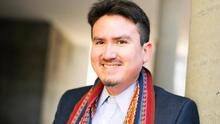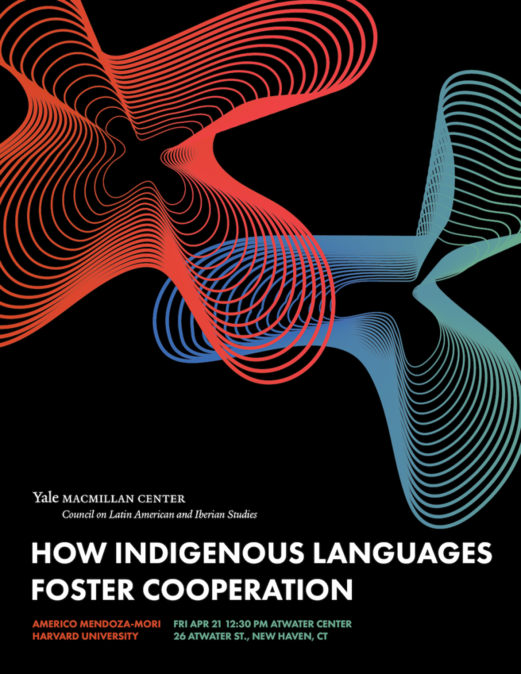“Indigenous identities sometimes conflict with Latinidad and U.S. Americanness”: An interview with Américo Mendoza-Mori

Américo Mendoza-Mori is a Peruvian-born advocator of indigenous languages and Andean culture in the United States. He researches and teaches on U.S. Latinx and Indigenous studies at Harvard University’s Committee on Ethnicity, Migration, Rights (EMR). His research and advocacy have been featured by the United Nations, The New York Times, NPR, among others. He had previously taught at the University of Pennsylvania, where he founded the Quechua language program. Dr. Mendoza-Mori will visit us this week. CLAIS has organized a meeting between him and the local community of Fair Haven, particularly the senior Hispanic population. The event will be hosted at the Atwater Center in Fair Haven on Friday, April 21 at 12.30 pm. It´s free and open to the public.
What is the relation between Indigenous languages and cultural identities in a diasporic context?
In recent years different initiatives that celebrate and teach Indigenous languages have appeared, and they understand themselves as part of a bigger cultural reclamation and community-based movement. These spaces then also facilitate identity-oriented experiences among the participants. In the case of diasporic communities, Indigenous language and cultural celebration projects becomes an empowering tool to affirm their voices while navigating the challenges of a racialized society.
What do you mean by the term “Hemispheric Quechua” and how does it relate to your research?
Quechua and other Indigenous languages are usually depicted as ‘fading’ or only in connection with cultures and civilizations of the past (the Incas, the Aztec Empire). While this historic aspect and ongoing challenges are true, it is also necessary to learn more about Indigeneity as a contemporary issue. In the case of Quechua, it is a language family spoken by almost 10 million in South America. My recent research focuses on how migrant communities from the Andes incorporate Quechua into their lives in New York City, Miami, or Virginia. These dynamics assert the hemispheric and global presence of Quechua and other Indigenous languages.

How do you define the relationship between Indigeneity and Latinidad?
Latinidad encompasses many experiences and identities; however, at the same time, due to legacies of discrimination, Afro-diasporic and Indigenous populations have been overlooked or simplified by the popularized notion of mestizaje, which assume that everyone is part of a homogenous melting pot. Given that context, Indigenous identities overlap and sometimes conflict with Latinidad and U.S. Americanness. This is a constant process of negotiation for the recognition of their voices and agencies.
What mainstream ideas about diaspora, language, and identity has your research challenged?
One key idea could be that learning about the existence of Quechua initiatives in the Global North becomes a powerful statement of the resistance, resilience, and community-building capacity of Indigenous migrant communities.
Another aspect is that by exploring these Indigenous language initiatives, we can see how the definition of identity is not a monolith, especially in the context of migration and interculturality. By realizing this complexity of identities, we can also contribute to foster a society where claiming multiple identities is no longer seen as a contradiction.
Afro-diasporic and Indigenous populations have been overlooked or simplified by the popularized notion of mestizaje, which assume that everyone is part of a homogenous melting pot.
What research questions are you currently exploring, whether for articles, presentations or book projects?
A new peer-reviewed article “Hemispheric Quechua”, co-authored with my colleague Rachel Sprouse, explores the presence and dynamics of Quechua speakers in New York City. For my book project “Global Quechua: Indigenous culture and language reclamation in the diaspora” I am planning to focus on intergenerational and community-oriented efforts for Quechua/Kichwa speakers and community members across local, regional, and diasporic contexts, including the U.S., Europe and the Andes.
By Alan-Mendoza-Sosa, Graduate Communications Fellow, alan.mendoza-sosa@yale.edu
